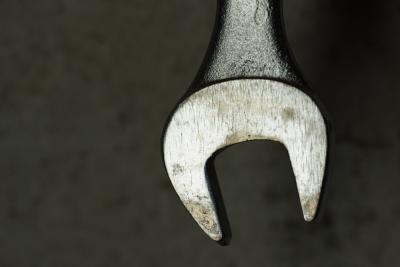
Your 1999 Buick LeSabre engine relies on an electric, in-tank fuel pump for good acceleration and speed. But internal components wear, causing the pump to lose the necessary pressure over time. You can restore power to your Buick’s engine by replacing the failed pump. Prepare ahead of time and have on hand all the necessary tools, including the special fuel sender lock nut wrench for the job. And before you begin, make sure you have the correct replacement fuel pump for your particular model.
Disconnect the black ground battery cable with a wrench.
Loosen the fuel filler cap.
Drain the fuel from the tank through the fuel filler tube using a hand siphon pump into an approved container if necessary.
Relieve the fuel system pressure by depressing the pressure-test port valve using a small, flat head screwdriver. The valve is located on the fuel rail, in the engine compartment, leading to the fuel injectors. Wrap a shop rag around the valve to catch the squirt of fuel.
Raise both wheel assemblies using a floor jack and support the vehicle with jack stands at each side.
Support the fuel tank with the floor jack. Place a piece of wood between the tank and the jack saddle to prevent damage to the tank.
Detach the tank supporting straps using a ratchet, ratchet extension and socket.
Lower the fuel tank about 6 inches to gain access to the hoses connected to the fuel sending unit and pump assembly on top of the fuel tank.
Disconnect the hoses from the fuel sending unit and pump assembly. On hoses with metal collar fittings, use tool set J-34730. On hoses with plastic collars, depress the retaining tabs and pull the fittings apart.
Disconnect the fuel sending unit and pump assembly from the fuel tank using tool number J-39765 or a similar fuel sender lock nut wrench.
Lift the fuel sending unit and pump assembly out of the fuel tank and discard the O-ring seal under the assembly.
Remove the fuel pump from the assembly using a flat head screwdriver and a pair of needle-nose pliers.
Install the new fuel pump onto the assembly using the flat head screwdriver and needle-nose pliers.
Install the fuel sending unit and pump assembly into the fuel tank using a new O-ring seal.
Secure the fuel sending unit and pump assembly onto the fuel tank using tool number J-39765 or a similar fuel sender lock nut wrench.
Raise the fuel tank just enough to connect the hoses to the fuel sending unit and pump assembly.
Attach the hoses to the fuel sending unit and pump assembly by pushing the hose fittings against the fittings on the assembly.
Raise the fuel tank in position using the floor jack and secure the mounting straps using the ratchet, ratchet extension and socket, then remove the floor jack.
Reinstall both rear wheels and retighten the lug nuts using the lug wrench.
Lower the vehicle and finish tightening the lug nuts if necessary.
Refill the fuel tank and tighten the fuel filler cap.
Reconnect the black ground battery cable with the wrench.
Prime the fuel system by turning the ignition key to the “On” position for five seconds. Turn the ignition off for 10 seconds then turn it back on.
Check the fuel tank for leaks and turn off the ignition.